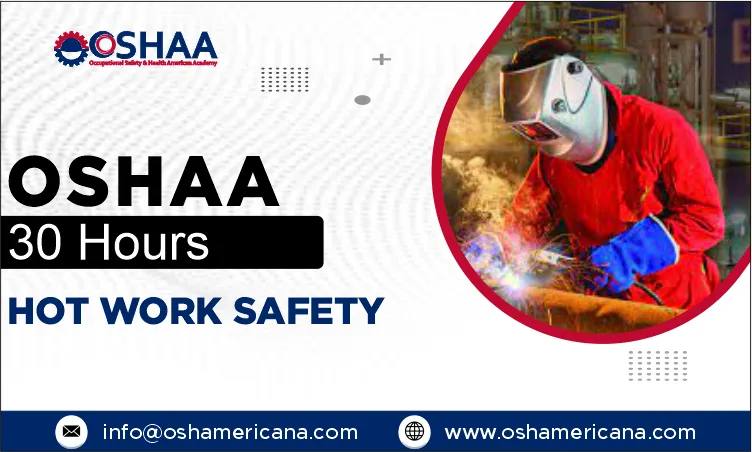The demand for professionals with expertise in Autism Spectrum Disorder (ASD) has increased significantly in recent years. With growing awareness and the need for specialized care, obtaining a professional qualification in this field can be an invaluable asset. The OSHAA 30-Hour Professional Diploma in Autism Spectrum Disorder is designed to equip individuals with the necessary knowledge and skills to support individuals with autism effectively.
Autism Spectrum Disorder is a complex neurological condition that affects communication, behaviour, and social interactions. The spectrum nature of ASD means that individuals experience a wide range of symptoms, from mild to severe. Early intervention and professional support play a crucial role in improving the quality of life for individuals with autism.
The OSHAA 30-Hour Professional Diploma in Autism Spectrum Disorder is an intensive training programme aimed at educators, healthcare professionals, caregivers, and anyone interested in supporting individuals with autism. This diploma provides an in-depth understanding of ASD, including its characteristics, diagnosis, intervention strategies, and best practices for support.
The OSHAA 30-Hour Professional Diploma in Autism Spectrum Disorder is an excellent opportunity for individuals seeking to deepen their knowledge and skills in autism support. With an increasing need for specialised professionals, obtaining this diploma can make a significant difference in the lives of individuals with ASD and their families. Whether you are a professional looking to advance your career or a caregiver seeking to enhance your understanding, this course provides valuable insights and practical tools to make a positive impact.
OSHAA 30-Hours Professional Diploma in Autism Spectrum Disorder
Study Units
Learning Outcomes
Introduction to Autism Spectrum Disorder (3 Hours)
- Define Autism Spectrum Disorder (ASD) and its key characteristics.
- Explain the different types and variations of ASD.
- Identify common misconceptions and myths about autism.
- Recognise the importance of early intervention and support.
Diagnosis and Assessment of ASD (5 Hours)
- Understand the diagnostic criteria for ASD based on international standards.
- Identify the common signs and symptoms of autism across different age groups.
- Explain various assessment tools and screening methods used by professionals.
- Recognise the role of healthcare professionals in the diagnostic process.
- Evaluate the importance of accurate diagnosis for effective intervention.
Behavioural Characteristics and Challenges (3 Hours)
- Identify common behavioural traits associated with ASD.
- Understand the impact of sensory processing differences on behaviour.
- Explain triggers and factors influencing challenging behaviours.
- Develop strategies for managing and supporting individuals with behavioural difficulties.
Communication and Social Interaction (5 Hours)
- Explain common communication difficulties in individuals with ASD.
- Identify different types of communication methods, including verbal and non-verbal.
- Understand the use of Augmentative and Alternative Communication (AAC) systems.
- Develop techniques to support social interaction and peer relationships.
- Recognise the importance of adapting communication strategies for different individuals.
Therapeutic Interventions and Approaches (3 Hours)
- Identify evidence-based intervention strategies for ASD.
- Explain the principles of Applied Behaviour Analysis (ABA) therapy.
- Understand the role of speech and occupational therapy in autism support.
- Evaluate the effectiveness of different therapeutic approaches.
Educational Strategies and Inclusion (5 Hours)
- Understand the importance of inclusive education for individuals with ASD.
- Identify key challenges faced by autistic individuals in educational settings.
- Develop strategies for designing Individualised Education Plans (IEPs).
- Explore classroom adaptations and teaching techniques for students with ASD.
- Recognise the role of teachers and support staff in fostering an inclusive environment.
Family and Caregiver Support (4 Hours)
- Understand the emotional and psychological impact of ASD on families.
- Identify resources and support networks available for caregivers.
- Develop strategies to empower and educate families about autism.
- Recognise the importance of collaboration between families and professionals.
Mental Health and Well-being in ASD (4 Hours)
- Identify common mental health challenges associated with ASD.
- Understand the relationship between autism and co-occurring conditions such as anxiety and depression.
- Develop strategies for promoting emotional well-being and self-regulation.
- Recognise the importance of personalised mental health support for autistic individuals.
- In-Depth Knowledge of Autism Spectrum Disorder – Provides a thorough understanding of ASD, including its characteristics, assessment methods, and intervention strategies.
- Enhanced Professional Credentials – Strengthens expertise with a recognised qualification, demonstrating a commitment to excellence in autism support and care.
- Career Advancement Opportunities – Expands employment prospects in education, healthcare, therapy, and social services by equipping professionals with specialised ASD knowledge.
- Evidence-Based Practical Skills – Equips participants with research-backed strategies to effectively manage communication challenges, behavioural issues, and therapeutic interventions.
- Specialised Training for Educators and Healthcare Professionals – Supports teachers, therapists, and healthcare providers in developing inclusive environments and personalised care plans.
- Support for Families and Caregivers – Empowers individuals with the skills needed to provide informed care, guidance, and advocacy for autistic individuals in various settings.
- Comprehensive Approach to Inclusion – Focuses on creating inclusive educational, workplace, and social environments to support individuals with autism in different aspects of life.
- Ethical and Professional Best Practices – Reinforces ethical considerations, safeguarding principles, and professional responsibilities when working with individuals on the autism spectrum.
- Flexible and Accessible Learning – Designed to accommodate diverse professional backgrounds, offering structured content that aligns with industry standards and practical applications.
- Personal and Professional Growth – Develops essential skills such as empathy, adaptability, and problem-solving, enhancing the ability to support individuals with ASD effectively.
The OSHAA 30-Hour Professional Diploma in Autism Spectrum Disorder is designed for individuals seeking to enhance their knowledge and skills in supporting autistic individuals across various settings. This course is ideal for:
- Educators and Special Education Professionals – Teachers, teaching assistants, and special educational needs (SEN) coordinators looking to create inclusive learning environments for students with autism.
- Healthcare Professionals – Doctors, nurses, psychologists, and occupational therapists who work with individuals on the autism spectrum and require specialised training.
- Therapists and Counsellors – Speech and language therapists, behavioural therapists, and mental health professionals seeking to expand their expertise in autism-related interventions.
- Social Workers and Community Support Professionals – Individuals involved in social services, disability support, and advocacy for people with ASD.
- Parents and Caregivers – Family members and guardians who want to better understand autism and develop effective strategies to support their loved ones.
- Employers and HR Professionals – Workplace inclusion specialists and HR managers aiming to foster a more inclusive work environment for employees with autism.
- Anyone Interested in Autism Support – Individuals passionate about making a difference in the lives of autistic individuals, whether in a professional or personal capacity.







